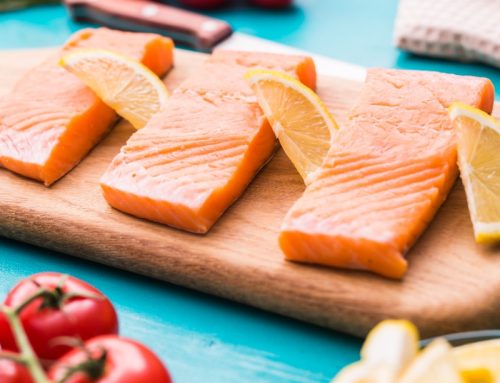Personalized diets may be on the horizon. The U.S. federal dietary guidelines are based on the idea that there is a single approach that works for everyone who wants to lose weight. Many Certified Nutritionists and Registered Dietitians have begun to question this dogma.
In fact, genetic analysis testing is being offered by at least a dozen companies, including Nutrisystem. According to their website, a DNA analysis of cheek swap will reveal how your body processes macronutrients and provide you with a customized weight loss road map.
End the guesswork! Let your DNA provide a weight loss blueprint for your body. With this simple and secure DNA test kit, you’ll unlock secrets in your DNA, including how your genes affect your weight loss, why your metabolism works the way it does—and what you can do about it.
Personalized Diets Must Be Truly Personal
But, personalized diets can’t be based on genetics alone. A new study debunks the DNA testing claims. It demonstrates that even twins with the same genetics are not amenable to the same weight loss and weight maintenance strategies.
It turns out that different people, even identical twins with nearly the exact DNA, respond to the same foods very differently.
Personalized Diet Study on Twins
Researchers tracked 1,100 U.S. and U.K. adults, including 240 pairs of twins, for two weeks.
- They monitored participants’ blood sugar, insulin and fat levels after they ate pre-formulated meals like muffins and glucose drinks.
- They tested the microbes living in their guts.
- They tracked their sleep and exercise.
They found that foods that spiked one person’s blood sugar or kept their fat levels elevated for hours didn’t necessarily do the same for someone else, even if that person was their identical twin. Individuals even had different responses to the same meals when they were eaten at different times of day. Many dieters can attest to that based on personal experience. Every dieter has struggled with a scale has refused to budge even after careful dieting.
Deborah Good, an associate professor of human nutrition, foods, and exercise at Virginia Tech, says we’ve got a long way to go to develop a personalized diet. According to Good, “The scientific community doesn’t fully understand the complicated matrix of genes, environment and biomarkers that influences an individual’s reactions to a wide range of foods.”
Even some research about gene-specific dieting has been disappointing. A major 2018 study, for example, found that just as many people succeed (or fail) to lose weight on low-carb versus low-fat diets, with no clear reason why. The genetic markers researchers thought would correlate with success on one plan or the other turned out not to, pushing off the prospect of gene-based diets.
Conclusions of New Study of Personalized Diets
Study co-investigator Tim Spector, professor of genetic epidemiology at King’s College London sums up the conclusions:
- Our recommendations, medically and public-health wise, have assumed that if people follow the standard plan, they’ll lose weight and develop fewer chronic diseases.
- That thinking has now been exposed as completely flawed.
- These results suggest that nutrition facts alone cannot predict how a certain food will affect health and weight.
- But, that doesn’t mean you throw all nutrition advice out.
- There are some guidelines and recommendations around the world that nearly everybody agrees on.
- These include eating plenty of produce and fiber, and cutting back on calories and ultra-processed foods.
- Yet there are plenty of lingering nutrition questions, for example whether it’s ok to skip breakfast that remain unresolved.
The Key to Personalized Diets May Be Gut Bacteria
Perhaps the key to personalized diets based on our unique metabolisms lies in the stomach. Rather than genetics, Spector says, the secret to personalized dieting may rely on the microbiome, or the colony of microbes living in your gut. There’s still a lot scientists don’t understand about the microbiome, but studies suggest it affects many aspects of human health.
The latest study presented at the American Society of Nutrition conference revealed that even identical twins only had about 37% overlap in gut microbes. Unrelated individuals typically have a 35% overlap. In light of those differences, the answer may not lie in the DNA but in the microbiome.
Scientists still don’t know enough about gut bacteria or diet-gene interactions to offer the type of personalized advice that would actually be helpful for dieters. For now, your best bet is to follow nutrition suggestions that do appear to be universal, like eating a diverse array of plants and cutting back on processed food, and take blanket nutrition guidelines with a grain of salt.
Click here to read full article on personalized diets







